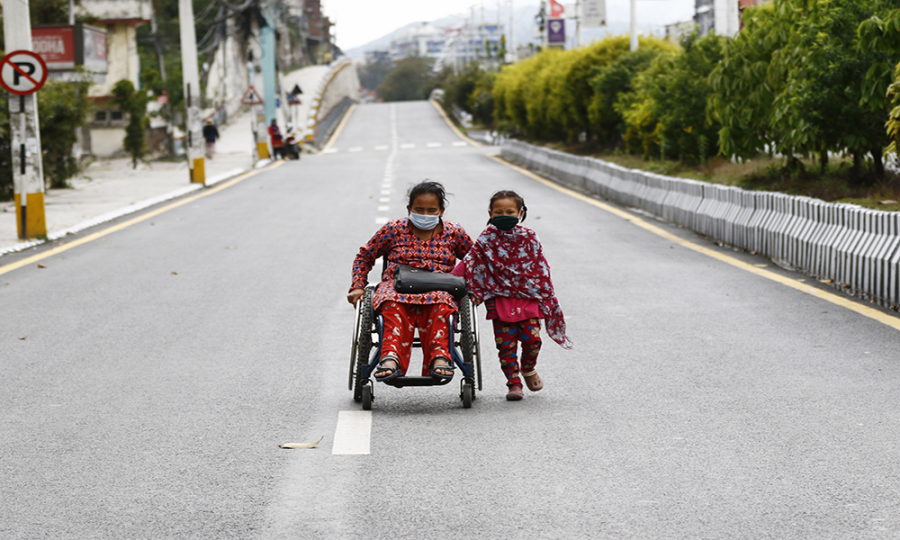Editorial
Poorly implemented
The lockdown in its current form cannot be sustained for a long period. The government must ramp up testing and tracing.
The government has decided to extend the lockdown until May 18, while closing all border points and international flights until the end of this month. Having been under lockdown since March 24, with the airport closing on March 22, this extension essentially means that Nepal will have been shut for nearly two whole months.
Such are the times during a pandemic with no cure. Covid-19 has wreaked havoc and forced humanity to rethink the entire way of life, most particularly social interactions. With a workable vaccine several months away from completing clinical trials, there is not much else, other than social and physical distancing, that governments can enforce to ensure that their citizens are safe. Yet, Nepal’s approach to imposing such distancing rules has been severely lacking.
The novel coronavirus is a highly contagious virus that has already infected over 3.6 million people all around the world. What makes it particularly difficult to manage is the high death rate—already killing over 250,000 and rendering many more (one in six infected) to be so ill as to require ventilator support to respire. Many experts believe that the death rate remains as low as it is—still high mortality—has been because distancing has allowed for the infection to stagger; only a manageable number of people have become ill at any given time, allowing most healthcare systems to treat patients within their capacity.
However, with Nepal’s handling of its version of distancing measures, the country is lucky to not become a hotspot of death and misery. The problem here lies in how the government seems not to empathise with those suffering under the lockdown—which can create a humanitarian crisis worse than what Covid-19 can bring. Nepal has a small but growing economy. For most of its income, the country has relied upon the tourism and hospitality sectors, along with a massive reliance on the income of migrant workers abroad. With travel and tourism rightly being brought to a halt, stakeholders in these sectors already look to face major hardships.
Many of the migrant workers are also facing reduced wages amidst a global downturn. This means that should the lockdown continue as is, not only will many Nepalis struggle to pay for essentials, but the country will also potentially run out of foreign currency to pay for essential imports such as food, medicines and equipment. Supply chain disruptions have, even now, affected the import of essential vaccines and vital medications—already causing fatalities.
Meanwhile, the government has done little else but force people to stay at home. People who live in cramped quarters struggle to isolate from neighbours, many who are a room or bed away, without the luxury to stretch their legs for the lack of adequate open spaces. The police have been quick to enforce isolation measures, oftentimes in brutal fashion, but the government has not used the opportunity of most people being immobilised to ramp up testing efforts.
The government seems to be aping India’s moves—each extension here closely mirrors that of the southern neighbour’s. Yet, it seems to struggle with the fact that simply isolating people will not eradicate the virus. The steady rise in cases shows that infections continue apace. The cases will continue to rise, as the government continues to bury its head in the sand. What is needed, and has been enforced in the countries successfully staving off a major crisis, has been the gradual opening up of essential industries, while ramping up testing and tracing to isolate those who have the potential to spread the infection.
***
What do you think?
Dear reader, we’d like to hear from you. We regularly publish letters to the editor on contemporary issues or direct responses to something the Post has recently published. Please send your letters to [email protected] with "Letter to the Editor" in the subject line. Please include your name, location, and a contact address so one of our editors can reach out to you.




 18.12°C Kathmandu
18.12°C Kathmandu














